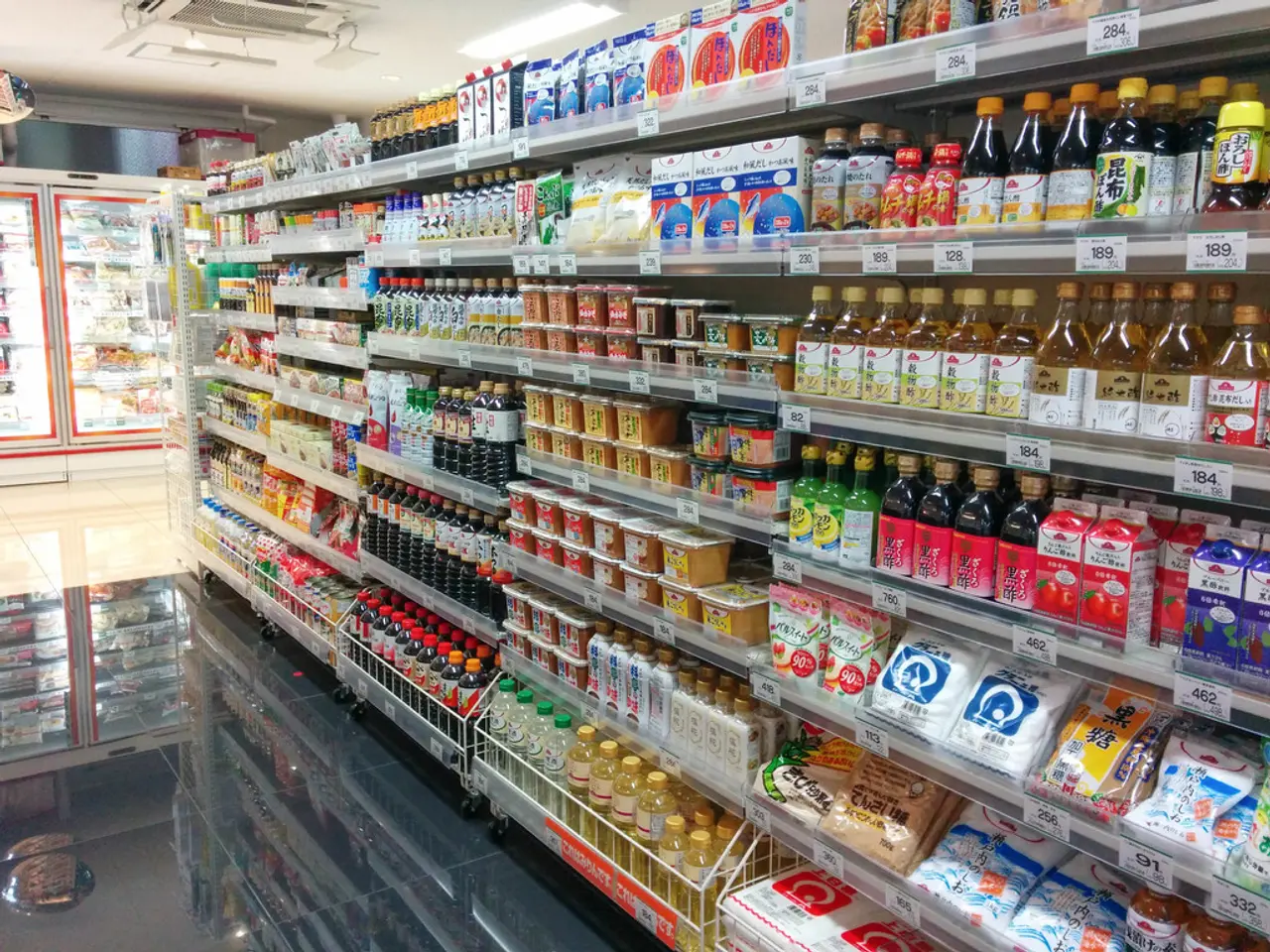Economic Advisers' Report Confirms Tariffs Don't Trigger Price Hikes
In a surprising turn of events, a recent report from the Council of Economic Advisors (CEA) during President Donald Trump's second term has challenged the widespread belief that his tariffs would lead to inflation. The report, which analyses the movement of imported goods prices in relation to overall goods prices, presents compelling evidence that tariffs have not contributed significantly to inflation.
The report, which covers the period up to May 2025, found that the prices of imported goods have actually decreased this year, falling faster than overall goods prices since February 2025. This trend is observed in both the Personal Consumption Expenditures (PCE) Price Index and the Consumer Price Index (CPI).
A closer look at the PCE Price Index reveals that overall goods prices increased by 0.4% from December through May, corresponding to a 1% annualized rate. In contrast, the imported component of PCE goods prices dropped by 0.1% during the same period. This indicates that imported goods prices have not been a significant contributor to inflation.
The findings are consistent across various product categories, including core goods (excluding food and energy), durables, and nondurables. The report's conclusions are further strengthened by the fact that the declining trend in imported goods prices is observed in both the PCE and CPI.
However, some critics argue that the short timeframe of the study may not allow for definitive conclusions, especially since some tariffs were only recently imposed. Additionally, the stockpiling of goods before new tariffs took effect could have temporarily mitigated price increases.
Despite these caveats, the data currently available suggests that tariffs have not led to a rise in inflation as predicted by many economists. The CEA's analysis for the PCE and CPI highlights a robust pattern, one that, if sustained, could challenge conventional wisdom about the impact of tariffs on inflation.
The report breaks down the PCE Price Index and the CPI into imported and domestic components, allowing for a more nuanced understanding of the economic impact of tariffs. However, it does not provide specific information about tariffs on Japan and South Korea, which were also implemented during this period.
The CEA acknowledges that its analysis "does not identify the counterfactual in which tariffs are not instituted." Nevertheless, the report's findings provide valuable insights into the real-world effects of tariffs, offering a counterpoint to the predictions of inflationary pressures often associated with such policies.
- The decrease in the prices of imported goods, as found in the report covering the period up to May 2025, contradicts the prediction of a rise in inflation due to tariffs, according to many economists.
- The CEA's analysis of the PCE Price Index and the Consumer Price Index (CPI) indicates that tariffs have not been a significant contributor to inflation, as the trends in the prices of imported goods are observed to be lower than overall goods prices in both indices.




